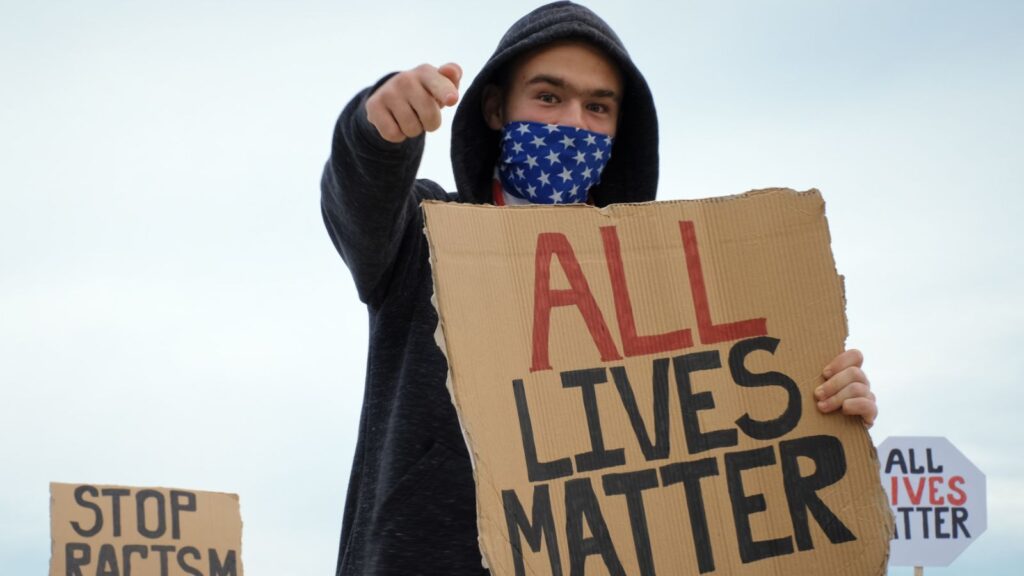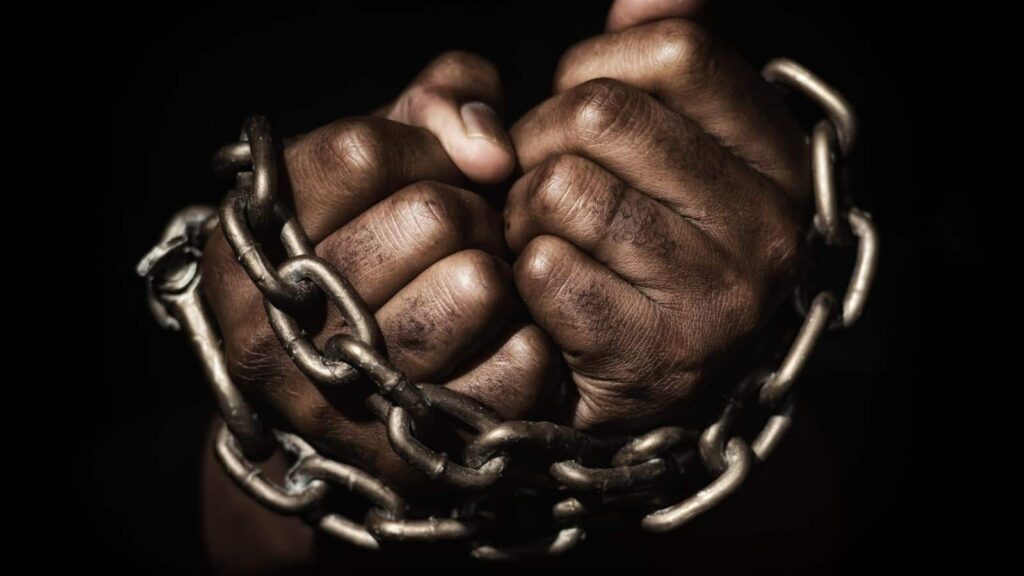White privilege, an often subtle yet pervasive phenomenon, manifests in many ways, particularly through the language and phrases commonly used by white individuals. While these statements are sometimes well-meaning, they can reveal an underlying lack of awareness about systemic inequities. Let’s take a look at 18 examples of phrases that highlight this privilege.
“All Lives Matter”

A response often used to counter the Black Lives Matter movement, this phrase minimizes the specific struggles faced by the Black community. It’s important to acknowledge that saying “Black Lives Matter” highlights the need for justice and equality for a group that has been historically marginalized, victimized, and discriminated against.
“Slavery Was a Long Time Ago”

This dismisses the ongoing impact of historical injustices, including systemic racism, that persists today and stems from the toxic culture of slavery, and many of the effects of slavery are still evident in various social, economic, and political disparities.
“You’re so Articulate”

Complimenting a non-white person on their smartness or articulation can come off as condescending, implying that eloquence is only expected from white people, and It reinforces negative stereotypes about intelligence and communication skills.
“Let’s Move on and Focus on the Future”

Addressing past and present injustices is essential for building a fairer future, and ignoring these issues doesn’t contribute to meaningful progress because healing the hurt and pain of the past are integral parts of moving forward.
“If You Work Hard Enough, You Can Achieve Anything”

While hard work is important, this statement ignores the barriers and systemic inequities that make it harder for non-white people to succeed. Many individuals who benefit from white privilege are unaware of it and the extra effort required for ethnic minorities to access the same opportunities as themselves.
“I Don’t Have Privilege; I’ve Had a Hard Life Too”

White privilege doesn’t mean the absence of hardship. It means that certain aspects of life, like race, haven’t been a source of disadvantage; recognizing this can help to foster empathy and awareness among the white community.
“I’m Not Racist; I’m Colorblind”

Claiming colorblindness can inadvertently perpetuate racism by ignoring the systemic nature of racial issues, as seeing and addressing these differences is crucial for achieving equity.
“You’re Overreacting”

Dismissing the concerns of non-white people as overreactions invalidates their experiences and perpetuates a lack of understanding and empathy for the reality of living in a mainly white society as an ethnic minority.
“I Don’t Get Why You’re so Angry”

This phrase dismisses the legitimate frustration and anger that stem from experiences of racism and injustice, and experiencing racial macro and micro-aggressions on a daily basis can have a negative impact on an individual's sense of self-worth, confidence, and self-esteem. The white community needs to respond with understanding and empathy if they wish to heal the wounds of racial discrimination in our fellow Americans.
“I Have a Black Friend, so I’m Not Racist”

Having friends of different races doesn’t exempt someone from holding or perpetuating racist views or behaviors. Racism is pervasive and systemic, and personal relationships alone don’t dismantle these structures.
“I Don’t Understand Why Everything is About Race”

Many would argue that the reason someone might not understand why the topic of race is so important is because they have been lucky enough not to have experienced the exclusion, victimization, and discrimination of racism. Race significantly impacts the lives of people of non-white people, and acknowledging this reality is crucial for addressing racial inequalities and creating a more just society.
“We All Bleed the Same Color”

While this statement aims to promote unity, it overlooks the lived realities of racial discrimination, and ignoring these differences can actually perpetuate the very issues it seeks to deny.
“Racism Doesn't Exist Anymore”

Many would claim that only a person who doesn’t experience racism would say this statement, and it’s a typical thing for someone with white privilege to say. But the sad fact is that racism still exists today, and non-white people have to face macro and micro-aggressions due to the color of their skin on a daily basis.
“Why Are You Playing the Race Card?”

Accusing someone of “playing the race card” has derogatory connotations, and it minimizes their experiences and suggests that discussions about race are exaggerated or invalid. The truth is that many people wish that it wasn’t a “card” that existed at all.
“I Didn’t Mean it Like That”

Intentions don’t erase the impact of harmful words or actions, and taking responsibility and learning from our mistakes is vital for fostering understanding and growth and learning to “do better.”
“I Never Owned Slaves”

This is an incredibly cringy and insensitive statement as it signals that the person saying it is lacking in either intelligence, understanding, or both. While individuals today didn’t directly participate in slavery, the legacy of slavery continues to affect societal structures and racial inequalities, and acknowledging this historical influence is important.
“Everyone Can Be Racist”

This statement is sometimes used as a “counter-argument” to claims of racial discrimination by the white community. But racism involves power dynamics and systemic oppression, which the white community has predominantly presided over, and while anyone can hold prejudices, racism in its systemic form mainly affects marginalized groups.
“My Ancestors Faced Oppression Too”

Comparing different forms of historical oppression can be dismissive and insensitive as each experience is unique, and it’s important to address current systemic issues without minimizing others.
How to Do Better

Understanding how language can reflect and perpetuate privilege is a crucial step in addressing systemic racism. By recognizing and adjusting these common phrases, we can contribute to a more equitable and inclusive society. These phrases, while often said with good intentions, can foster ignorance and insensitivity. By understanding and acknowledging the privilege inherent in these statements, we can begin to encourage more inclusive and equitable dialogue about race and racism.
30 Traditional Sayings That Are Now Considered Offensive by Woke Culture

30 Traditional Sayings That Are Now Considered Offensive by Woke Culture
21 Habits Often Associated With Having a Lower Social Status

21 Habits Often Associated With Having a Lower Social Status
25 Social Issues Gen Z are Determined to Cancel

